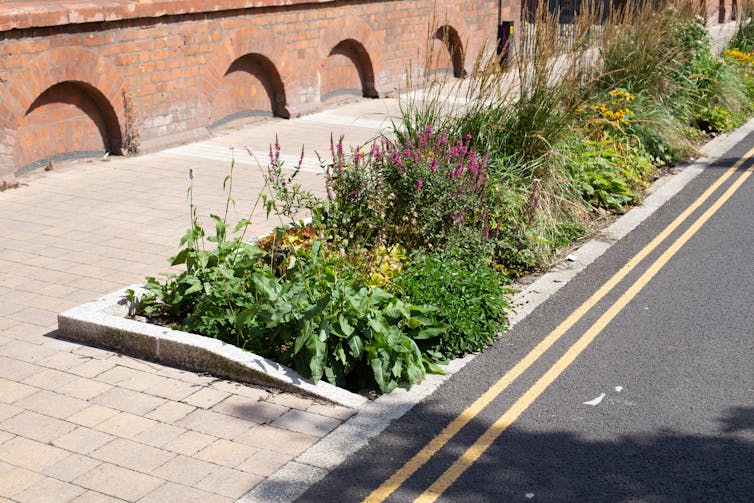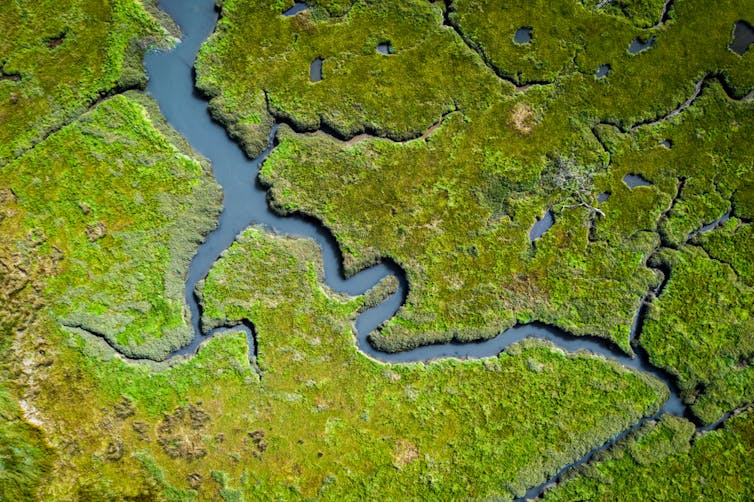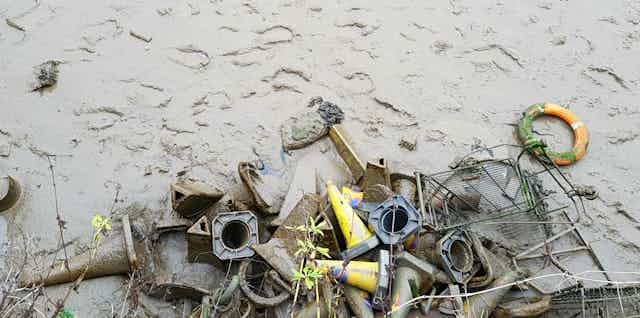Britain’s rivers and coasts are polluted – there’s no escaping that fact – and water companies are coming under more and more pressure to fix things. Most recently, a law firm has announced its plans to take collective legal action against the UK’s six biggest water companies over alleged pollution and overcharging.
Private water companies have admitted they need to do more and pressure must be kept on them to do so – they cannot be let off the hook. But anyone who wants to see cleaner rivers and coasts can’t simply sit back and wait for the promised investment and improved practises, because the problems facing Britain’s waterways are far greater than those caused solely by the water industry – and the solutions will need many other sectors of society and industry to get involved.
Here are three things that would improve Britain’s rivers and coasts – which don’t require the water companies.
1. Less concrete, more soil
The first is to develop a water-conscious construction industry: new developments need to do everything they can to reduce the amount of rainwater entering standard drains. Too many of these drains combine with the sewage treatment system, which then becomes overloaded during periods of heavy rain resulting in water companies releasing the overflow into the environment.
Therefore, instead of having areas of impermeable concrete, buildings and developments must allow rainwater to soak naturally into the ground through so-called Sustainable Drainage Systems, or SuDS.

This can take the form of everything from permeable street paving to wonderfully biodiverse mini-urban ponds and wetlands, all of them doing their bit to reduce the amount of rainwater from roofs or surface water flowing across roads and carparks, from entering the sewage system.
2. Develop the UK’s ‘kidneys’
The second action is to enhance the natural functioning of different habitats that can help protect rivers and coasts. This approach is often referred to in the latest ecological jargon as using “nature-based solutions”.
What it means is encouraging the natural biology, chemistry and ecology of an ecosystem to lend us a hand in tackling some of the biggest environmental problems. In this case we must look at conserving and constructing more wetland habitats.
Since 1700 the UK has lost 75% of its wetlands. These “kidneys of the landscape” can remove pollutants from watercourses and even help control levels of water throughout the year, acting as giant sponges during the wetter months and releasing it during drier periods.

Strips of reeds and shrubs are essential for healthy rivers and there must now be a national push to reintroduce these riparian wetlands along whole stretches of water where they have been lost. They can filter out pollutants and remove some of the excess nutrients flowing through rivers more effectively and efficiently than any hard engineered system we could build.
Along the coasts saltmarshes have the same superpower and not only must they be protected but, if possible, restored. For instance novel techniques to restore a saltmarsh using dredged material are currently being tested near Chichester on the south coast of England.
3. Individual responsibility
As with many environmental issues it’s easy for us to think individual actions don’t matter, but they do. All of us need to look at our water use and consider what we flush down the toilet, as both of these actions can put unnecessary pressure on an already struggling water industry (avoid flushing wet wipes whatever you do).
Even dropping litter in the street can result in clogging up a water treatment process, or simply adding to the levels of pollution floating in our rivers and polluting our coasts. A piece of street art in France next to a gutter sums up this last point pointedly, the stencilled text says “ici commence la mer” – the sea starts here:
As well as the pathogens and excessive nutrients sewage brings to our rivers, there is the as of yet unknown quantities of microplastics, pharmaceutical waste and other drug and chemical compounds entering during these pollution events. Improving the water quality in our rivers is clearly vital for the health of entire ecosystems, wildlife and our own wellbeing.
To do this we mustn’t stop demanding better from Britain’s water companies. But the high level of pollutants in these watercourses has been caused by shortcomings in various areas of society and cleaning it up will therefore require a determined societal approach.

Don’t have time to read about climate change as much as you’d like?
Get a weekly roundup in your inbox instead. Every Wednesday, The Conversation’s environment editor writes Imagine, a short email that goes a little deeper into just one climate issue. Join the 20,000+ readers who’ve subscribed so far.

